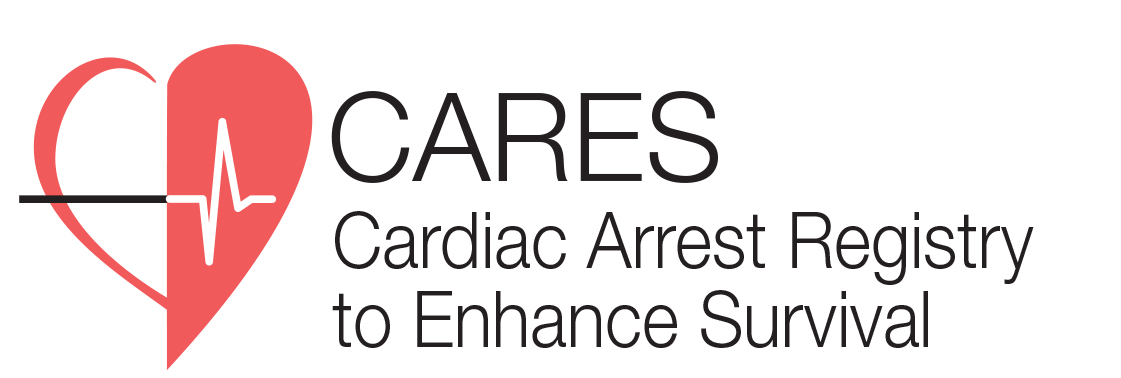Please select from the following questions.
How does a state initiate participation in CARES?
CARES state participation can be initiated by an organization or group of stakeholders from within or outside state government. Once key stakeholders have determined there is interest in a statewide subscription to CARES, the next step is to schedule an initial call with CARES staff to discuss state characteristics, complexity, and the current method of data collection for EMS systems and hospitals. To learn more about statewide participation, please contact Tiara Sinkfield, the CARES Director of State Programs, at tiaracares@emory.edu.
Who manages CARES state recruitment, training, and data collection?
The key stakeholders in the state drive plans for local implementation and
rollout, with CARES staff assisting throughout the process. A dedicated state
coordinator acts as the CARES state liaison to local EMS agencies and hospitals.
The state coordinator will receive comprehensive training from CARES staff via a
webinar and/or site visit. CARES staff will also assist with bringing the first
"pilot" agency into CARES prior to expanding throughout the state.
The state coordinator will be responsible for training local EMS agency and hospital
contacts on the CARES data entry and audit process, as well as overseeing local
data collection and audit feedback. As part of the state coordinator training
process, CARES will provide resource documents that can be referenced or
distributed to end-users. CARES staff will provide ongoing support, software
updates, and supplemental training materials throughout participation.
Where can a state obtain funding for a coordinator position?
There are several ways for states to fund a state coordinator. The following sources have been used by states participating in CARES:
- State EMS Office
- State Hospital Association
- State Department of Health
- Educational institution, such as a university or academic medical center
- Grant Funding
How much does CARES statewide participation cost?
The CARES subscription fee for statewide participation ranges from $17,000-$25,000 a year based on population (this does not include the funding for a state coordinator as described above). Statewide participation provides a significant discount compared to numerous agencies in the same state participating in CARES independently.
What state participation models have been successful to date?
Below are examples of current CARES state implementation models:
Traditional model
- The state coordinator pilots CARES with one EMS system and then expands throughout the state, enrolling EMS agencies as they are ready to participate.
- EMS agencies enter their data via desktop computer or automatic extraction from ePCR systems; hospitals that receive patients from participating EMS agencies are asked for their participation as well.
Uniform ePCR vendor for the state
- CARES works with states that utilize one software vendor for all of their EMS agencies (such as Maryland and Hawaii),making data upload to CARES standardized and efficient. Data from all state EMS agencies are uploaded to CARES via automatic extraction. The hospital dataset is entered by hospital contacts once the EMS dataset is in CARES.
How does data get into CARES?
There are two methods of data entry into the CARES database.
- The CARES dataset can be entered manually by the CARES EMS contact or the EMS field providers/supervisors.
- The CARES dataset can be automatically extracted using a NEMSIS compliant file from the electronic Patient CareReport, which then auto-populates the CARES registry.
How is CARES state data used?
In addition to helping local EMS administrators and medical directors identify the who, when, and where of cardiac arrest events, the state coordinator and individual EMS agency will have the ability to generate "real-time" reports. The state coordinator and hospitals may generate an automated Hospital Report describing pre-hospital and in-hospital characteristics of their respective patients. The CARES reporting features allow for internal benchmarking at the agency, hospital, state, and national levels. CARES staff will help each participating state develop a Data Sharing Committee, consisting of local stakeholders and CARES oversight staff, which reviews and approves data sharing proposals. The goal of this committee is to protect agency and hospital data confidentiality and oversee the use of data belonging to these entities. More information on the CARES state data sharing policy can be found on the CARES website (mycares.net/sitepages/datasharepolicystate.jsp).
Who has access to the data?
The participating EMS agency has access to all of the EMS and hospital data for their patients. EMS agencies do not have access to data from other participating agencies. Hospital contacts only have access to their own data and can view, but not edit, the EMS dataset for patients transported to their facility. CARES staff and the state coordinator have access to all EMS and hospital data for monitoring and de-identification purposes.
What is the data used for?
EMS agencies can use their data to report performance and for internal quality improvement efforts. CARES allows agencies to easily link their own data to hospital outcomes, allowing them to look at survival rates and neurological outcome, rather than just the short-term outcome in the field (such as return of circulation). Several agencies also use CARES data to provide reports to local officials or the public, as well as to benchmark their performance against the rest of the state or nation. Hospitals also have access to the data and can use it internally for quality improvement and benchmarking.States that participate can look at overall statewide outcomes, which can help determine if protocol changes, educational efforts, or other interventions are having the desired impact.
How do I obtain more information about CARES?
More information is available to anyone via the CARES website (mycares.net). Visit the CARES homepage and select the "About CARES" tab. Please feel free to contact CARES staff with any questions (information found on the "Contact Us" webpage).
Copyright © 2026 MyCares.net. All rights reserved. Unauthorized usage
is prohibited. Usage will be monitored. 

